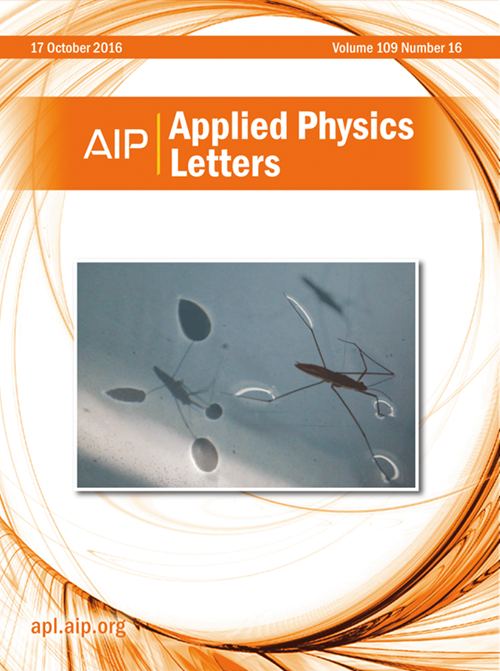Ultrafast dynamic mid-infrared beam steering via hot-electron modulation in graphene metasurfaces
IF 3.5
2区 物理与天体物理
Q2 PHYSICS, APPLIED
引用次数: 0
Abstract
Ultrafast dynamic wavefront control is pivotal for advancing photonics applications in LiDAR, high-resolution imaging, and quantum information processing. Conventional wavefront control techniques, such as mechanical beam steering and liquid-crystal-based modulators, are limited by slow response times and bulky configurations, making them unsuitable for high-speed, on-chip applications. In this work, we propose a graphene-based phase-gradient metasurface that leverages hot-electron dynamics for tunable, ultrafast wavefront control in the mid-infrared regime. By precisely modulating the electron temperature in graphene with femtosecond laser pulses, our device achieves real-time beam steering with a maximum reflection angle shift of 21° within 104 fs, as well as dual-focal length switching. The device demonstrates high reflectivity, continuous 2π phase modulation, and an achromatic response over a substantial bandwidth, making it a robust solution for high-speed optical encoding and adaptive optics. This graphene-based platform provides a compact, reconfigurable solution that overcomes the limitations of traditional and emerging approaches, establishing a foundation for next-generation integrated photonics systems.石墨烯超表面热电子调制的超快动态中红外光束转向
超快动态波前控制对于推进激光雷达、高分辨率成像和量子信息处理中的光子学应用至关重要。传统的波前控制技术,如机械波束转向和基于液晶的调制器,受到响应时间慢和体积大的限制,使得它们不适合高速的片上应用。在这项工作中,我们提出了一种基于石墨烯的相梯度超表面,它利用热电子动力学在中红外波段进行可调的超快波前控制。通过用飞秒激光脉冲精确调制石墨烯中的电子温度,我们的装置实现了实时光束转向,在104 fs内最大反射角移位21°,以及双焦距切换。该器件具有高反射率,连续2π相位调制和在相当大的带宽上的消色差响应,使其成为高速光学编码和自适应光学的鲁棒解决方案。这种基于石墨烯的平台提供了一种紧凑、可重构的解决方案,克服了传统和新兴方法的局限性,为下一代集成光子学系统奠定了基础。
本文章由计算机程序翻译,如有差异,请以英文原文为准。
求助全文
约1分钟内获得全文
求助全文
来源期刊

Applied Physics Letters
物理-物理:应用
CiteScore
6.40
自引率
10.00%
发文量
1821
审稿时长
1.6 months
期刊介绍:
Applied Physics Letters (APL) features concise, up-to-date reports on significant new findings in applied physics. Emphasizing rapid dissemination of key data and new physical insights, APL offers prompt publication of new experimental and theoretical papers reporting applications of physics phenomena to all branches of science, engineering, and modern technology.
In addition to regular articles, the journal also publishes invited Fast Track, Perspectives, and in-depth Editorials which report on cutting-edge areas in applied physics.
APL Perspectives are forward-looking invited letters which highlight recent developments or discoveries. Emphasis is placed on very recent developments, potentially disruptive technologies, open questions and possible solutions. They also include a mini-roadmap detailing where the community should direct efforts in order for the phenomena to be viable for application and the challenges associated with meeting that performance threshold. Perspectives are characterized by personal viewpoints and opinions of recognized experts in the field.
Fast Track articles are invited original research articles that report results that are particularly novel and important or provide a significant advancement in an emerging field. Because of the urgency and scientific importance of the work, the peer review process is accelerated. If, during the review process, it becomes apparent that the paper does not meet the Fast Track criterion, it is returned to a normal track.
 求助内容:
求助内容: 应助结果提醒方式:
应助结果提醒方式:


